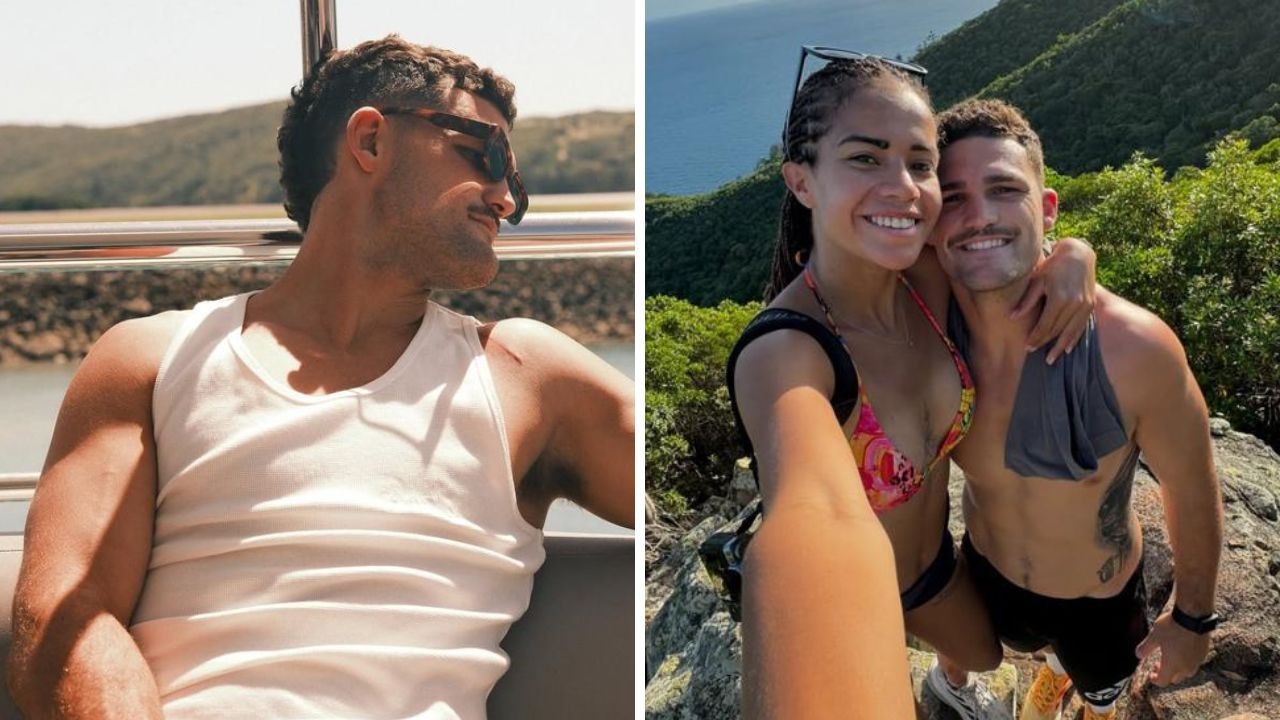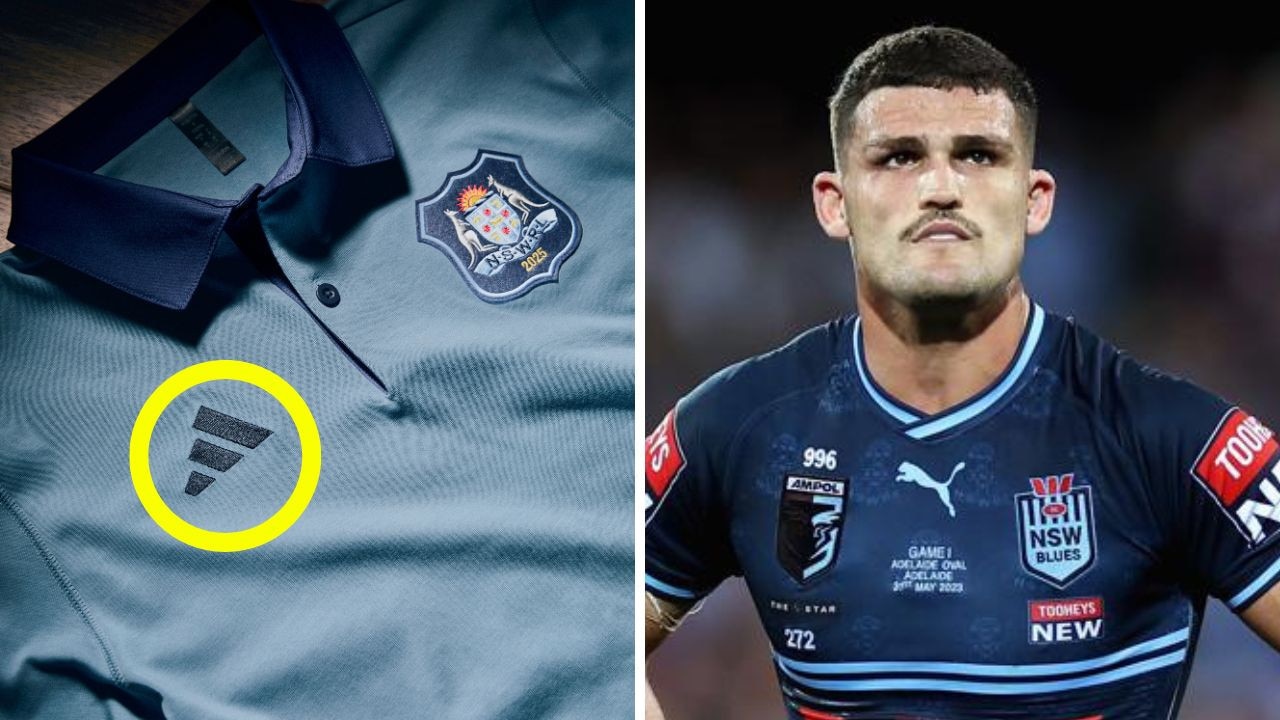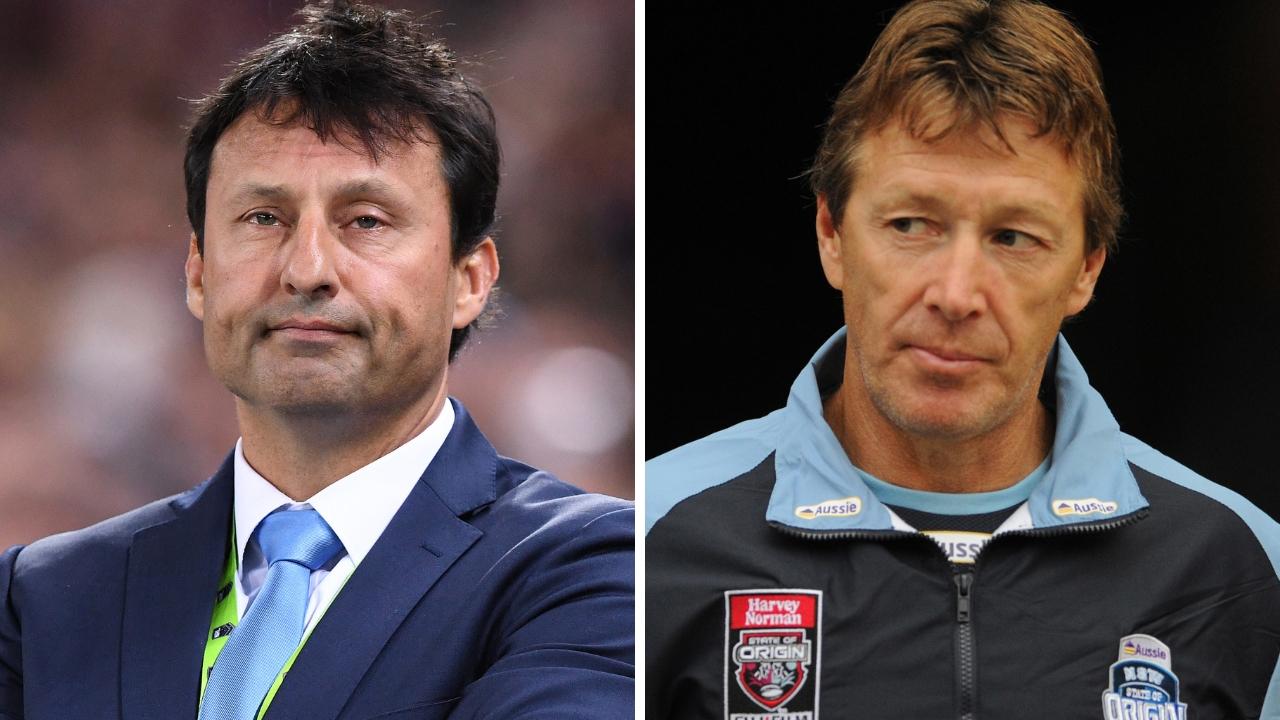Queensland twice as dependent on interstate players as NSW
IT’S official: The Maroons are taking the piss out of NSW and they’ve been doing it for decades on one of Australian sport’s grandest stages.
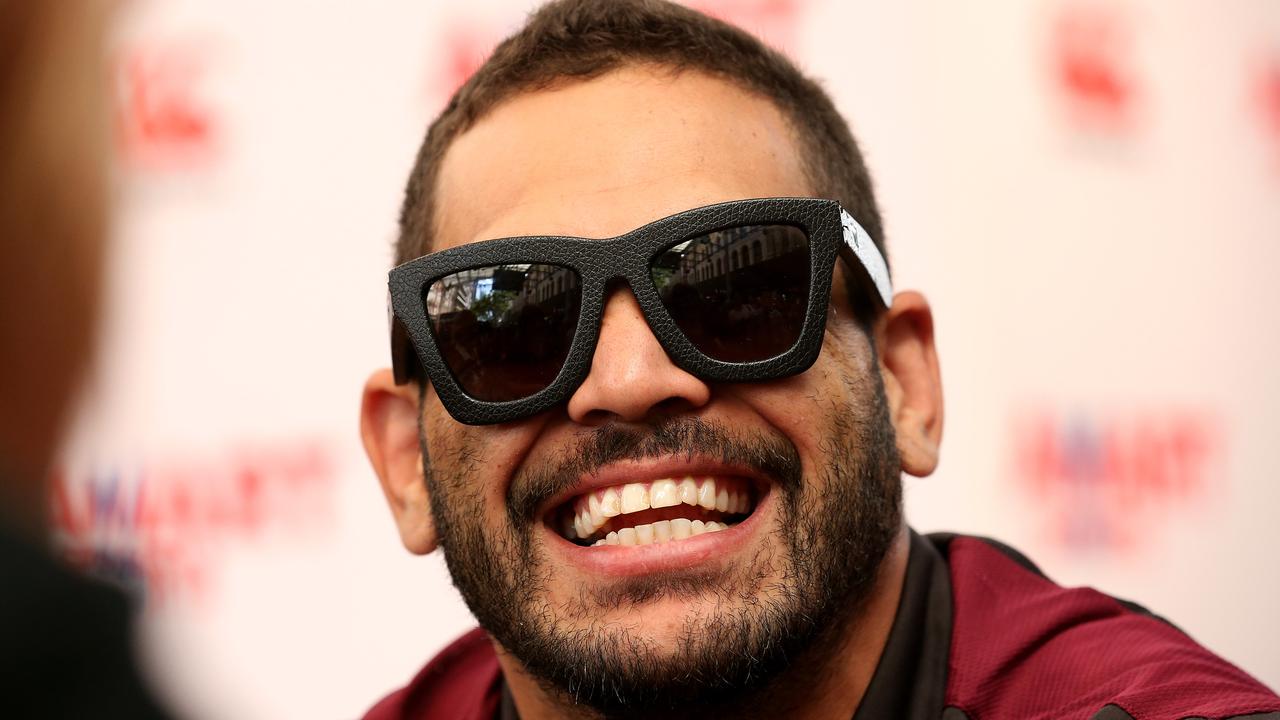
WITH each State of Origin series, the eligibility line surrounding who can take the field for each state becomes more blurred.
The concept, to play for the state in which you were born, while seemingly quite simple, notoriously poses confusion for players and selectors alike.
At least one team will almost always end up with someone in its side with debatable allegiance, however a deeper look into the stats shows just how one-sided the controversy has been for years.
Research covering the past three decades of Origin history has shown Queensland has fielded twice as many interstate players as NSW, with a total of 20 out of the 179 men to wear the Maroon jersey hailing from another state. Seventeen of those were from NSW. A further 12 hailed from overseas for a total of 32 non-Queenslanders.
That equates to 17.9 per cent of players who have ever pulled on a Maroons jersey not actually being from Queensland.
Compare that to NSW, who have selected just 10 interstate players out of a total 258. Ten others were from outside Australia, for a total of 7.8 per cent non-authentic Blues.
It begs the question: how are the Maroons getting away with it?
Queensland has always had a smaller selection pool to draw from. Up until 1995, when the North Queensland Cowboys were established, the Brisbane Broncos were the state’s sole club team in the national competition.
Yet despite its smaller numbers, Queensland has still managed to win a whopping 20 Origin titles over the past 35 years, including a dominant eight-year winning streak from 2006-2013.
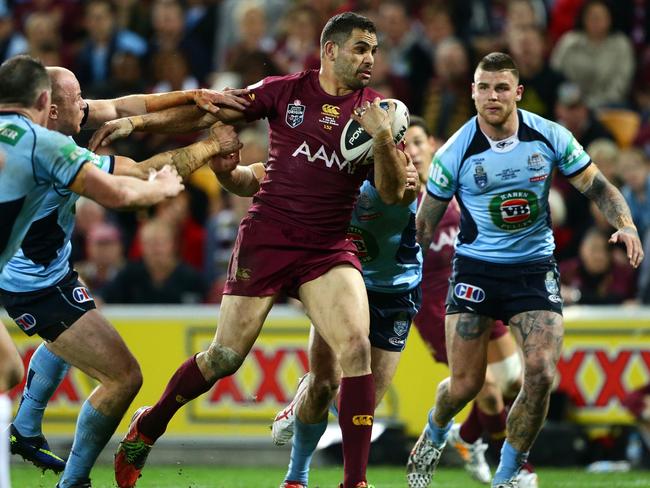
During those eight years, some of the biggest names of the modern game featured for Queensland, a number of which, based on the competition’s namesake, should have worn the blue jersey.
Men like Greg Inglis, Sam Thaiday and Israel Folau all helped the Maroons dominate during that period — and all were born in NSW.
In fact of the 20 interstate players to represent Queensland, 17 of those were born in NSW.
With nearly 10 per cent of Queensland’s playing group coming from the premier state, NSW will need to be careful who it lets slip through the cracks at junior level.
NRL eligibility rulings allow players to qualify for the state in which they played the majority of their junior football, or the state in which they resided from the age of 13.
With the Maroons turning out three NSW-born players during the 2014 series, NSW will no doubt be looking to tighten its grip on younger players in coming years, in the hope to retain future stars destined for the blue jersey.
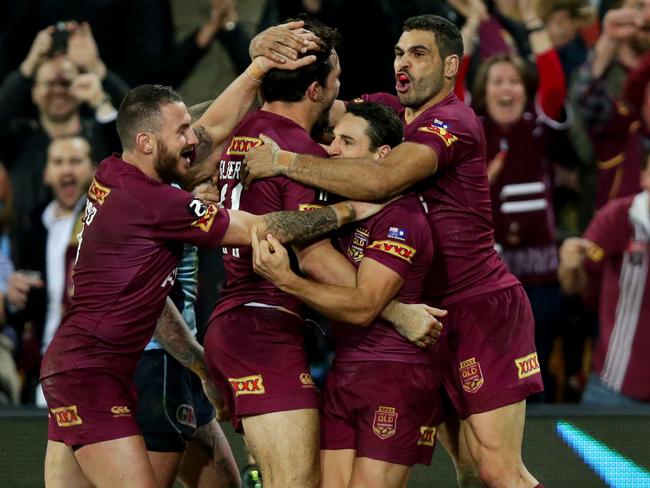
Below are the key findings from finder.com.au’s study The Ultimate State of Origin Lineup Comparison
KEY FINDINGS — QUEENSLAND
* Of the 179 players to represent Queensland, 32 were not born in Queensland — that’s 17.9%
* 9.5% of the players to represent Queensland were born in NSW
* Non Queensland players have contributed 246 combined games to the cause since 1980 and 166 of these were be players of NSW birth (87 of the 166 contributions by NSW players to Queensland teams resulted in a win for a winning percentage of 9.8%)
* In 7 of the 33 full three-game series, Queensland fielded a team solely made of Queenslanders
* In the 33 full three-game series, Queensland has had a greater percentage of non-State born players in its team than NSW on 23 occasions
* In its 18 series wins, Queensland has had the greater percentage of non-State players on 14 occasions, revealing a 77.8% dependency
* 17.1% of the total amount of points scored for Queensland were scored by non-State players (13% were scored by New South Welshman)
* The 17 NSW born players to play for Queensland have a 52.4% winning percentage
KEY FINDINGS — NSW
* Of the 257 players to represent NSW, 20 were not born in NSW — that’s 7.8%
* 1.6% of the players to represent NSW were born in Queensland
* Non NSW players have contributed 130 combined games to the cause since 1980 and 29 of these were be players of Queensland birth (13 of the 29 contributions by NSW players to Queensland teams resulted in a win for a winning percentage of 1.71%)
* In six of the 33 full three-game series, NSW fielded a team solely made of New South Welshman
* In the 33 full three-game series, NSW has had a greater percentage of non-State born players in its team than Queensland on nine occasions
* In its 13 series wins, NSW had the greater percentage of non-State players on 5 occasions, revealing a dependency of 38.5%
* 5.6% of the total amount of points scored for NSW were scored by non-State players (0.8% were scored by Queenslanders)
* The four Queensland born players to play for NSW have a 44.8% winning percentage
SINCE THE SUPER LEAGUE WAR
* Since 1995, on average 27.12% of the Queensland team were not born in Queensland (Queensland has one 61% of the series with a result in this time)
* Since 1995, on average 6.34% of the NSW team were not born in NSW (NSW has won 39% of the series with a result in this time)
* NSW has not fielded a player born in Queensland since 1995
* Queensland has fielded a NSW player in its team every year since 1991


